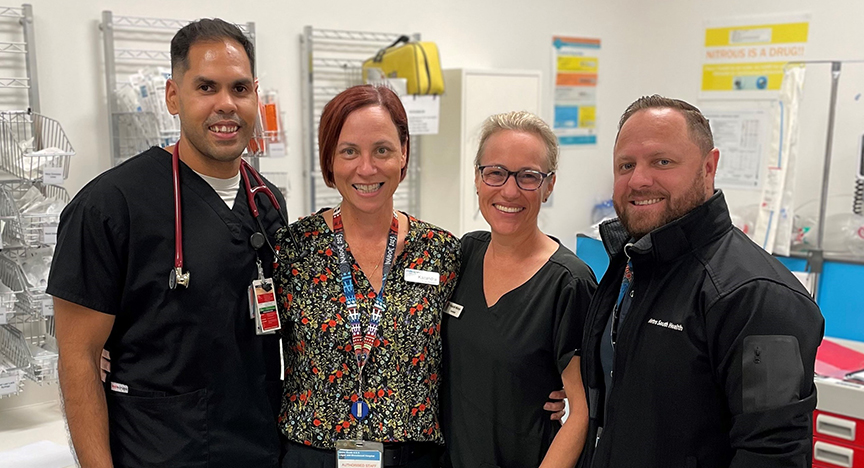
Meet Kazandra (Kaz) Perkins, our First Nations Nurse Navigator dedicated to improving the health of her mob through Logan Hospital’s Karulbo Project.
Kaz works with Aboriginal and Torres Strait Islander women in their twenties who have left hospital against medical advice or before their treatment has finished.
“We call this a Failed Episode of Care (FEC) and we have identified that First Nations women aged 21-30 years old have higher rates of FEC than the rest of our community,” she said.
The nurse of 25 years said she was committed to closing the gap in healthcare equality and wanted to empower patients to make positive choices about their health.
“The Karulbo Project will run for six months and aims to reduce hospital and Emergency Department re-presentation and unnecessary admissions through a number of suggested approaches,” she said.
“My primary role is to engage with Aboriginal and Torres Strait Islander clients who have experienced an FEC to better understand why they left without treatment. I then discuss alternative care, referrals and support depending on their concerns and circumstances.”
The Karulbo Project launched in Logan’s ED earlier this year and has already made a difference with more than 50 per cent of June FEC’s linked up with other healthcare services.
Kaz said the meaningful initiative allowed her to move off the sidelines and be part of a journey toward positive change in her community.
“I don’t have all the answers, but I wanted to do something that could help make a difference to those clients and their health outcomes.”
Emergency Department Director Dr Yolande Weiner said establishing a First Nations Nurse Navigator role was the first of many actions planned under the Karulbo Project.
“Karulbo means ‘Together' in Yugambeh language and we have been passionate about working together with our Aboriginal and Torres Strait Islander community on this important issue, which we know affects the mortality risk of this population,” Dr Weiner said.
Through yarning circles and other traditional meeting methods, extensive consultation was undertaken with First Nations consumers, community and Elders, resulting in a co-designed and culturally appropriate approach.
Dr Weiner said the initiative was not only empowering young First Nations women to make informed choices about their health, but also improving the cultural capability of the ED.
“We are dedicated and continuously working to improve our understanding of different cultures in the Logan ED so that we can provide a culturally safe environment for our Aboriginal and Torres Strait Islander patients.”
Both Dr Weiner and Kaz said they hoped the early success of the project continued and that the approach would be permanently rolled out across Metro South.
In the meantime, they said they would continue working hard to create meaningful change within the community.